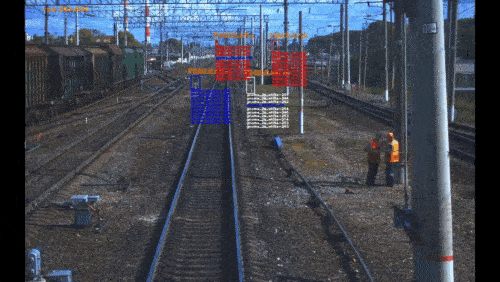Cognitive rail pilot: can robots take over train driving?

The artificial intelligence (AI) based system Cognitive Rail Pilot acquired the Declaration of Conformity to the regulations of the Eurasian Economic Union, meaning that it can start its deployment in several countries. The system is designed to assist locomotive drivers during operations by predicting and avoiding possible hazards.
The system was developed by the company Cognitive Pilot, and its functions allow rail companies, professionals and enthusiasts to take a look at the future of rail freight. The way it works not only assists the locomotive drivers but also takes over the hard part of their job- the management of dangerous situations. “The locomotive driver profession is one of the most challenging and dangerous – you have to work to the limit. Robots can take away the driver’s routine workload and assist in emergencies,” comments the company’s CEO Olga Uskova.
Robots taking over
Robots, as we fictionally imagine them, might not take the seat in the locomotive’s driving booth. However, they will have a crucial role in recognising the train’s route and providing functions such as stopping at a red light, stopping in danger of collision, stopping before a closed arrow, and high-precision locating of the locomotive.

Of course, AI will be the game changer in this case. As we have seen happening in terminal operations, AI will be the enabler of taking the next step to safe rail freight operations. “The AI-based system allows the locomotive to ‘see’ and ‘understand’ the situation along the way with high accuracy, to warn the driver of the danger, and in case of lack of response, to perform a safe stop automatically. In addition, using a set of special algorithms, the system allows the location and dynamics of the locomotive to be determined with a very high degree of accuracy,” explains the company.

Apart from the software system, the new generation locomotives will also need to equip with some hardware. Specifically, the system comprises three components: A multi-zone video camera that tracks the locomotive’s route and helps the system navigate, a specialised high-resolution millimetre-wave radar to locate any obstacles, and finally, an industrial-grade computing unit to support the system’s functions.

Licenced and ready to go
By acquiring the Eurasian Economic Union’s declaration of conformity, which ensures the system’s safety, Cognitive Rail Pilot is ready to start delivering its products in countries like Armenia, Kazakhstan and Belarus while more countries are about to follow.
“This declaration of conformity with the Eurasian Economic Union technical regulations requirements is the result of comprehensive tests of the Cognitive Rail Pilot system, that took place in 2021, and is an important step for the system’s further development and scaling,” says Uskova. Indeed the system underwent multiple tests in facilities belonging to the Russian Railways in which it succeeded. The tests included examining the software source code and testing hardware on dozens of parameters like electromagnetic compatibility, noise resistance, vibration resistance, compliance with climatic norms and resistance to moisture.
Also read:
You just read one of our premium articles free of charge
Want full access? Take advantage of our exclusive offer




